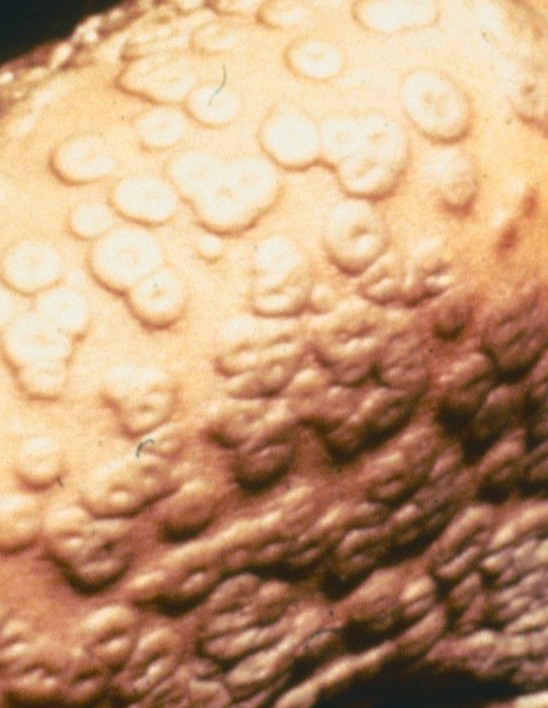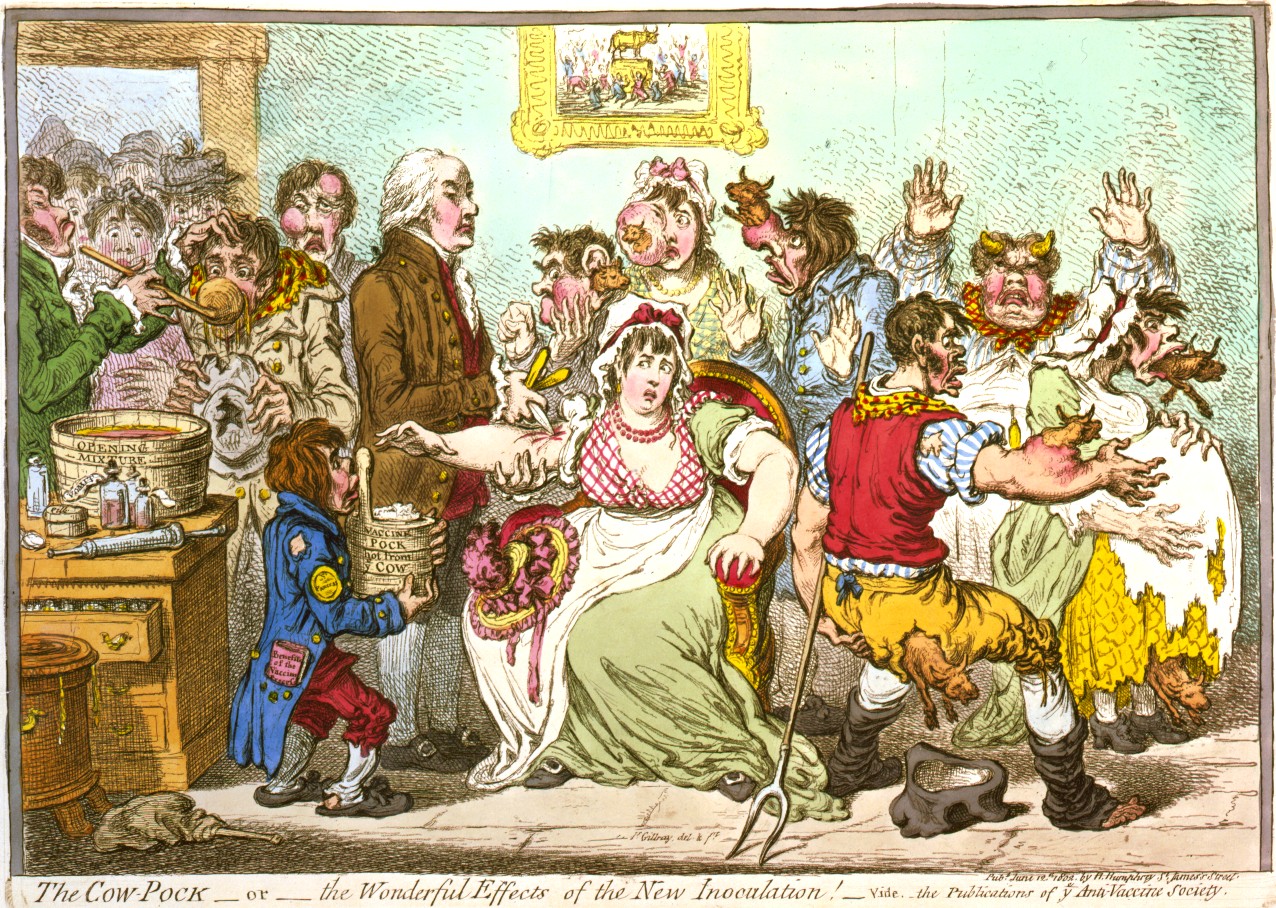The American Revolution
Disease and Illness

Disease and illness had a far greater impact on the lives of the Continental soldiers than the bullet. Some 90 percent of the deaths of the colonial soldiers came from illness or disease. The effects of smallpox were the worst.
Smallpox sores- With the typical crater-shaped markings. These sores were one of the symptoms of the disease.
Washington was very aware of the danger of smallpox. An example of this took place in the fall of 1775. Washington’s army was camped outside Boston. He would not allow the people from Boston to come in contact with his troops. It was thought that the British were trying to send out infected persons to start an epidemic. The British generally had developed immunity to smallpox because they had come in contact with it before. They were not at risk to smallpox like the Americans were. The colonists had not developed the same resistance to it.

As time went on, a system of protecting the soldier from smallpox was put in place. Inoculation would take place with new recruits as they came into the army. Soldiers were trained and prepared first. They would not go right out to battle. While getting ready, they were treated, before going out to battle.
This British cartoon was done by James Gillray and published by an anti-vaccine society. It exaggerates the effects and fears of smallpox and vaccines. (Pub. June 12, 1802)
Washington was uncommonly prepared personally against smallpox. When he was 19 and visiting Barbados, he caught the disease. He was sick with it for a month, but because of his earlier exposure to it, he was later immune from catching it again.
What were the negative effects of smallpox inoculations? Inoculated persons would get the disease even though it was a milder case. However, the worry about giving an inoculation was that it might cause an epidemic. Another concern was that inoculations are simple enough to give. A man could give it to himself. If that was done, it could cause the disease to spread. In addition, the soldier would get sick.
What were the benefits of inoculations? Inoculation symptoms and effects were milder. Also, fewer than one percent of inoculated soldiers died from smallpox. Most deaths during the Revolutionary War period were from disease. Smallpox was the worst of them. Most deaths at that time came because of disease.

Reading resources
© Reading-SocialStudiesSolutions
Text Credits:
https://www.loc.gov/rr/scitech/GW&smallpoxinoculation.html (Effects of smallpox; inoculations);
https://www.mountvernon.org/library/digitalhistory/digital-encyclopedia/article/smallpox/ (Effects of smallpox; Washington’s immunity;
https://www.armyheritage.org/75-information/soldier-stories/209-smallpox (Effects of inoculations cause mild cases of smallpox)
Image Credits:
Child with mallpox - Bangladesh - arm detail by James Hick with the Centers for Disease Control and Prevention- Wikimedia Commons;
The Cow Pock by James Gillray (June, 1802), Administration of smallpox vaccine and patients fears- Library of Congress- Wikimedia Commons
Text Readability:
ATOS- 5.7
Flesch-Kinkade- 5.54
SMOG- 8.24
Notes:


